Average Keyword Difficulty: Understanding and Using It for SEO Success
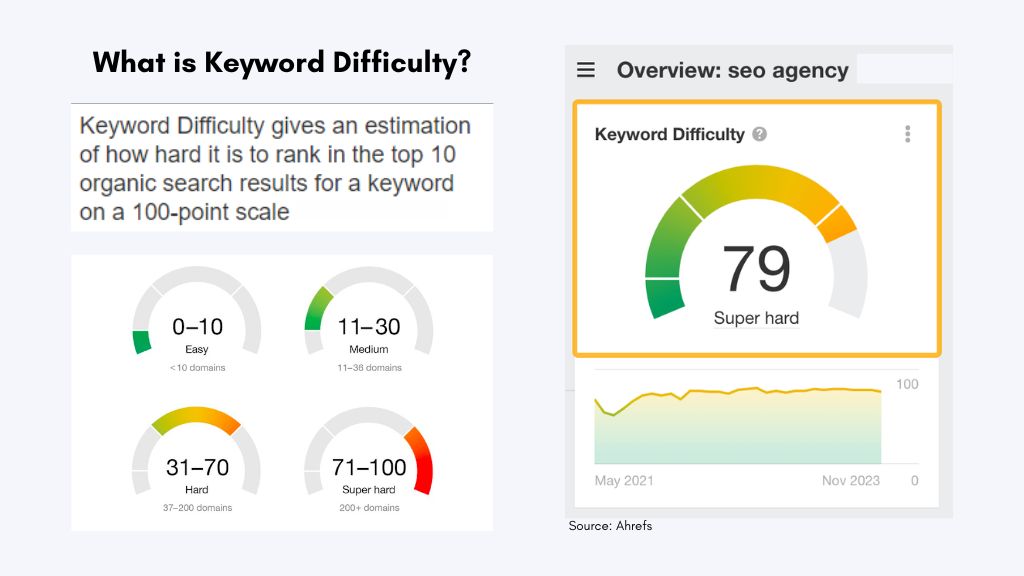
Keyword difficulty is a crucial concept in SEO. It helps you understand how hard it is to rank for specific keywords in search engine results. Knowing the average keyword difficulty can guide your SEO strategy, helping you choose the right keywords to target for better rankings and more traffic.
Let’s dive deep into what keyword difficulty is, how it’s measured, and how you can use it to improve your SEO efforts.
In this article:
- What is Keyword Difficulty?
- How is Keyword Difficulty Measured?
- Understanding Average Keyword Difficulty
- Using Keyword Difficulty in Your SEO Strategy
- Common Keyword Research Mistakes to Avoid
What is Keyword Difficulty?
Keyword difficulty is a metric that estimates how hard it is to rank for a specific keyword in search engine results. It takes into account various factors, including the strength of the competition and the quality of the content already ranking for that keyword.
Understanding keyword difficulty is important because it helps you:
- Identify Opportunities: Find keywords that are easier to rank for.
- Allocate Resources: Focus your efforts on keywords that are worth targeting.
- Set Realistic Goals: Develop achievable SEO strategies based on keyword competition.
How is Keyword Difficulty Measured?
SEO Tools
Several SEO tools can help you measure keyword difficulty, including:
- Ahrefs: Provides a keyword difficulty score based on the backlink profiles of the top-ranking pages.
- SEMrush: Calculates keyword difficulty based on various factors, including the authority of the top-ranking domains.
- Moz: Offers a keyword difficulty score that considers the strength of the competition.
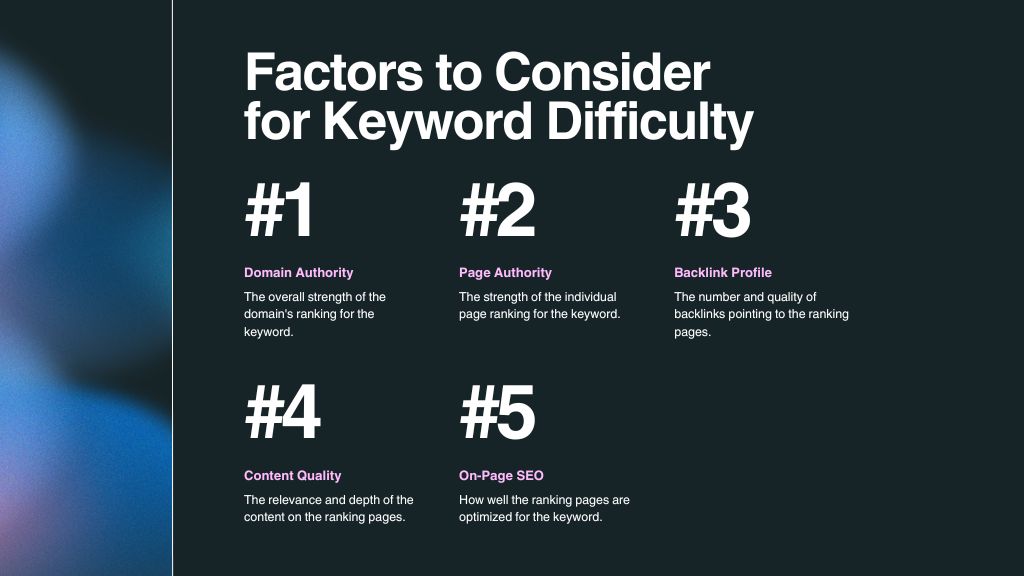
Factors Considered
Keyword difficulty is calculated using several factors, including:
- Domain Authority: Domain authority is the overall strength of the domain’s ranking for the keyword.
- Page Authority: The strength of the individual page ranking for the keyword.
- Backlink Profile: The number and quality of backlinks pointing to the ranking pages.
- Content Quality: The relevance and depth of the content on the ranking pages.
- On-Page SEO: How well the ranking pages are optimized for the keyword.
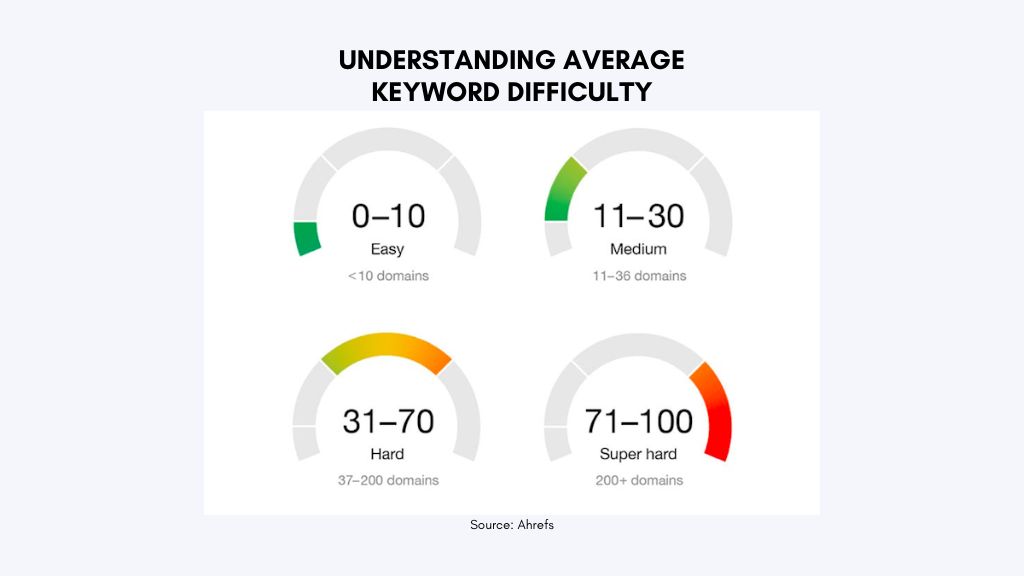
Understanding Average Keyword Difficulty
The average keyword difficulty varies across industries and niches. It’s essential to understand what the average keyword difficulty looks like in your specific field. Generally, keywords can be categorized into:
- Low Difficulty: Easier to rank for, usually long-tail keywords with less competition.
- Medium Difficulty: Moderately challenging to rank for, often has a balanced mix of competition and search volume.
- High Difficulty: Falls under Hard and Super Hard in Ahrefs. These are very competitive and hard to rank for, typically short-tail keywords with high search volume.
How to Find the Average
To find the average keyword difficulty in your niche:
- Use SEO Tools: Tools like Ahrefs, SEMrush, and Moz can provide you with keyword difficulty scores for a list of keywords.
- Analyze Competitors: Look at the keywords your competitors are ranking for and their difficulty scores.
- Assess Search Volume: Combine keyword difficulty with search volume to get a sense of the overall competition.
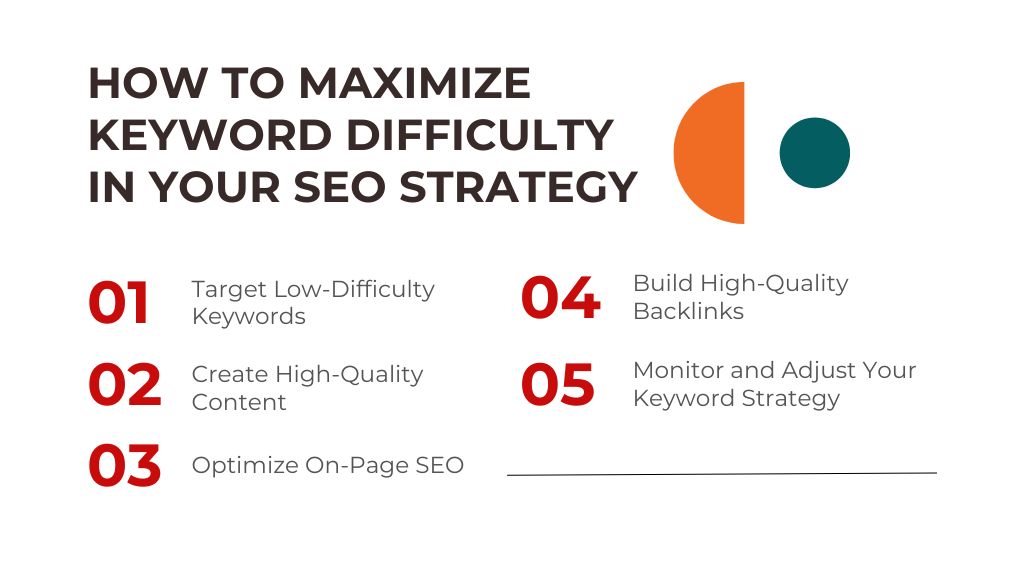
How to Maximize Keyword Difficulty in Your SEO Strategy
1. Target Low-Difficulty Keywords
Targeting low-difficulty keywords can be a quick win for your SEO efforts. These keywords are easier to rank for and can help you build authority and traffic.
How to Find Them
- Long-Tail Keywords: Look for long-tail keywords that are specific and have less competition.
- Niche Keywords: Focus on keywords that are specific to your niche and less competitive. You can also use branded keywords.
- SEO Tools: Use SEO tools to filter out low-difficulty keywords in your industry.
2. Create High-Quality Content
Even for low-difficulty keywords, high-quality content is crucial. Search engines prioritize content that is informative, engaging, and valuable to users.
Tips for Creating Quality Content
- In-Depth Research: Conduct thorough research to provide accurate and comprehensive information.
- Engaging Writing: Write in a clear, engaging manner to keep readers interested.
- Visuals: Use images, infographics, and videos to enhance your content.
3. Optimize On-Page SEO
Optimizing on-page SEO is essential for ranking well. Focus on these key factors:
- Title Tags: Include your target keyword in the title tag.
- Meta Descriptions: Write compelling meta descriptions that include the keyword.
- Headers: Use header tags (H1, H2, H3) to structure your content and include keywords.
- Internal Links: Link to other relevant pages on your site to improve navigation and authority.
4. Build High-Quality Backlinks
Backlinks are a critical factor in determining keyword difficulty. High-quality backlinks can boost your rankings, even for competitive keywords.
Strategies for Building Backlinks
- Guest Blogging: Write guest posts for reputable sites in your niche.
- Content Outreach: Reach out to influencers and bloggers to promote your content.
- Broken Link Building: Find broken links on other sites and offer your content as a replacement.
5. Monitor and Adjust Your Keyword Strategy
SEO is an ongoing process. Regularly monitoring your keyword performance helps you understand what’s working and what needs adjustment.
Monitoring Tools to Use
- Google Analytics: Track your website’s traffic and performance.
- Google Search Console: Monitor your site’s presence in Google search results.
- SEO Tools: Use tools like Ahrefs, SEMrush, and Moz to track keyword rankings and difficulty.
How to Make Adjustments to Your SEO Strategy
- Analyze Performance: Identify keywords that are performing well and those that are not.
- Optimize Content: Update and improve content for underperforming keywords.
- Adjust Focus: Shift your focus to keywords that offer better opportunities for ranking to improve online visibility.
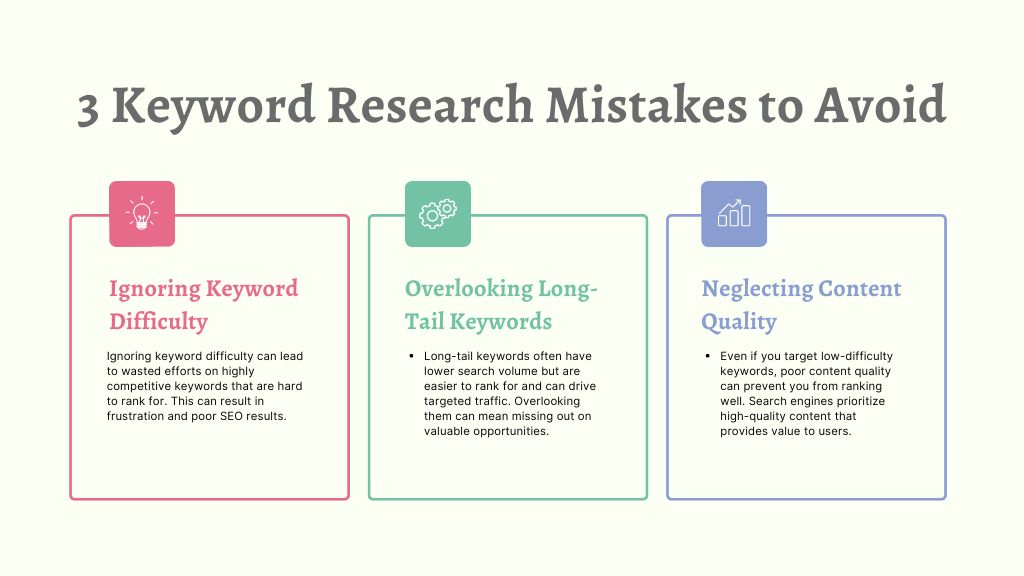
Common Keyword Research Mistakes to Avoid
Ignoring Keyword Difficulty
Ignoring keyword difficulty can lead to wasted efforts on highly competitive keywords that are hard to rank for. This can result in frustration and poor SEO results.
Always consider keyword difficulty when choosing keywords to target. Focus on a mix of low, medium, and high-difficulty keywords to balance your efforts.
Overlooking Long-Tail Keywords
Long-tail keywords often have lower search volume but are easier to rank for and can drive targeted traffic. Overlooking them can mean missing out on valuable opportunities.
Include long-tail keywords in your SEO strategy. They can help you rank faster and attract more specific traffic, maybe even social traffic.
Neglecting Content Quality
Even if you target low-difficulty keywords, poor content quality can prevent you from ranking well. Search engines prioritize high-quality content that provides value to users.
Invest time and effort in creating high-quality content. Ensure it’s well-researched, engaging, and optimized for SEO to increase time on page.
Boosting Your Keyword Strategy
Understanding average keyword difficulty lets you target the right keywords to create high-quality content. As you optimize on-page SEO and build high-quality backlinks, you can improve your rankings and drive more traffic to your site. Remember to monitor your performance regularly and adjust your strategy as needed.
Your keyword strategy isn’t just for the content you publish, it’s also a crucial factor for your off-page SEO campaign. As you refine your strategy, use Link Genius to supplement your efforts and find high-quality backlink opportunities. Sign up today!
